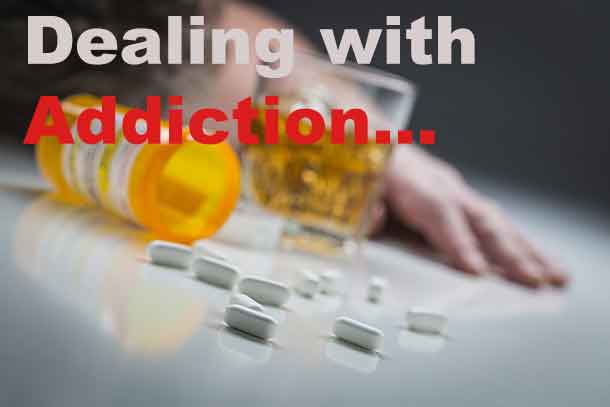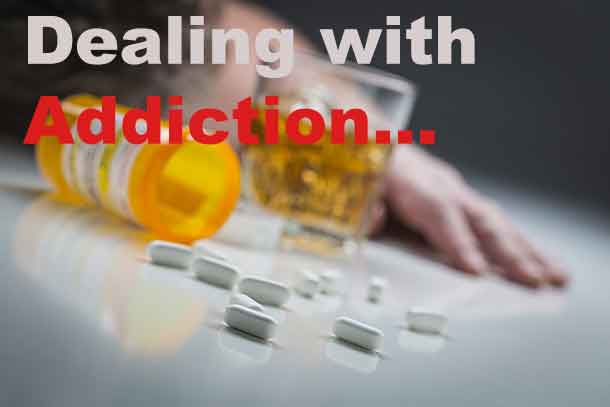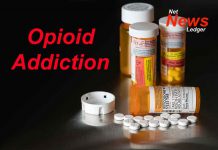
THUNDER BAY – Thunder Bay and Northwestern Ontario have a major problem with addiction. Alcohol and drug addiction impact many people and many families.
It can range from mild to severe. Seeking solutions is likely one of the toughest issues that face families – especially when teenagers embark on a lifestyle that can lead them down paths that end up going nowhere.
Northern Ontario has a massive issue with opioids, marijuana, and a growing issue with cocaine and now reportedly heroin. The level of gang activity in Thunder Bay and the profitability of illegal drugs in the region have brought in people who are seeking to fill the demand.
The police despite their efforts seem to be almost helpless to stem the flow of illegal drugs into the city.
For the family members left to try to deal with the actions of an addict there are options.
Addiction Campuses in the United States offer some advice.
- Avoid Denial.
Addiction is incredibly painful – and on top of that, there is a massive stigma that surrounds it. For those reasons, family members and friends sometimes turn a blind eye to what is really going on with their loved one. Sometimes, it’s easier to pretend that there isn’t a problem. However, doing so will neither help your addicted spouse. Facing the addiction head on will allow you to take control of your own health and wellbeing, and give you a clear head in deciding your next step. - Read Up On Addiction.
Remember the person you fell in love with? He or she still exists, and he or she would never have wanted to fall into this cycle of addiction and harm you. Addiction is a disease – and a family disease, at that. Living with addiction causes a domino effect in the life of the person using, as well as their family. In order to understand what you’re dealing with, it’s important to learn as much as you can about the disease: In addition to reading up on valuable information online, consider talking to an experienced treatment specialist who helps families every day. By talking to a specialist, you can gain a clearer picture of your own unique relationship and situation. - Learn About Codependent Relationships.
Remember when we mentioned that addiction is a family disease? Your loved one’s drug or alcohol addiction isn’t just affecting him or her. It’s affecting you, any children you may have, and anyone else in the home. The longer you live with a person in active addiction, the more you will be shaped by it. For example, you may now be experiencing a wide range of unhealthy emotions: Panic attacks when he or she doesn’t call or come home, fits of rage when you discover your spouse using again, obsessing over every move he or she makes. Unfortunately, when your life focus is centered around another person, you can’t focus on your own life or goals. People who love those in active addiction often find themselves dealing with their own disorder: Codependency. By understanding this disorder, you can make gradual changes that will help youand may, in turn, bring true help to your loved one. - Cut Out Enabling.
We talk a lot about enabling at Addiction Campuses because it’s one type of behavior that truly allows addiction to thrive. Enabling is essentially doing things for an addicted person that buffer him or her from consequences and allow him or her to continue using or drinking. Most enabling is done with the best of intentions – however, enabling hurts more than it helps. - Connect With A Support Group.
When it comes to addiction, there is strength in numbers. While you may feel as though you are completely alone in your situation – it’s important to know that there are many, many other spouses and partners out there who are dealing with the same problems. There are groups that offer guidance and support and the chance to connect with other people who understand what you’re going through. Groups such as Naranon or Alanon can help you to feel less isolated – and will help you learn how to live with a person who struggles with addiction. - Draw A Line In The Sand.
If your spouse or partner continues to refuse treatment for addiction, the negative consequences will more than likely continue. Everyone is different and only you know your own situation – which is why only you can make the choice of when or if to detach with love or leave the relationship. Whether it is financial lines, verbal or physical abuse – know your limit and set a line to draw that you will not compromise. In many cases, spouses eventually get the appropriate addiction help and people never reach this line. It is important, however, to know your own limits. - Take Care Of You.
There is only one person in this world that you can change – and that’s you. Self-care is essential for loved ones of addiction. It allows you to keep the focus on yourself while working on your own behaviors, health and actions. Taking care of yourself will give you strength you may have never known existed within you.
(Source: www.addictioncampuses.com)
In Thunder Bay the evidence of the impact of addiction can be seen in the growing numbers of methadone clinics. The goal there of course is to get people off of opioid based drugs, and slowly wean them off.
However what seems to be happening is the addicts are simply transferring from one drug to another. The clients are seen it seems more as a cash cow in many cases than a patient. Many of the methadone clinics in the city are operated from outside the city, and the physician sees their patient by video screen, not in person.
Addiction issues in the region have solutions.
Experts say that one of the key ways to help an addict is to stop enabling their behavior. That is one of the hardest things for many people to do.
Addiction Campuses advise that halting enabling is really hard due to a number of factors:
- We feel responsible.
Are you feeling guilty? Loved ones often fall into a pattern of enabling behaviors because they feel responsible for the addiction.“What if I was a better wife?” “I didn’t do a good job of parenting.” “I could have stopped this.”Despite these questions and insecurities, know that you did NOT cause the addiction to happen. However, by enabling their addiction, you are allowing it to continue. At this point, your loved one does have a choice: to remain in active addiction or to begin some type of active recovery. - We don’t want to hurt them by saying “no.”
I often admit to being a “people-pleaser” – I don’t like to let others down, even if it means biting off more than I can chew. Being a people-please can often transition into being a codependent person: putting others’ needs ahead of your own on a consistent basis.There’s a difference between being a nice person and being a nice person in a codependent relationship. If you feel like you’re losing yourself – in a sense, you are. By saying yes when you mean really mean no, you’re giving into the addiction and losing your boundaries, and what makes you – you. - We want to be the ones to fall on the sword or save the day.
Are you a natural caregiver? Do you have the ability to comfort, nurture and care for those around you? Caregiving is a beautiful train – but on the other side of the coin, helping other people can become addictive.
Martyring yourself over and over again without appreciation or gratitude isn’t healthy. While love sometimes calls us to invest our time and energy in tending to a loved one’s pain, it doesn’t do so 100% of the time. Love is a two-way street – not a relentless string of sacrifices. - What if something happens to them?
Day and night, the thought constantly works it’s way through your mind. “What if…”For so long, you’ve felt responsible for their drinking, their drug use, their actions when they’re high or drunk, their reckless behaviors, their lies, their outbursts. If you weren’t there to cover for them, bail them out or smooth things over – the worst could happen to them. Right?You are allowed to give your love and give it freely. But know, if you’re not there to “fix” them – your loved one will be forced to acknowledge and face their consequences, putting them one step closer to choosing change and recovery. - The obligation to protect your family from the shame of addiction.
Is the thought of people knowing that your loved one is addicted to drugs or alcohol humiliating? Do you want to shield your other children from it? Hide it from your spouse, neighbors, friends or community?The stigma of addiction doesn’t just keep us silent, it keeps our loved ones sick. - We’re afraid of their anger or outbursts.
Saying “no” and drawing boundaries doesn’t usually bode well with someone who is in active addiction. Someone who is addicted to heroin or alcohol or prescription pills has tunnel vision to get their next drink or next fix. When something gets in the way and blocks the path to the drink or the drug, it usually leads to angry outbursts and conflict.If you’ve never truly learned how to deal with other people’s anger or frustration or disappointment, it can feel easier to avoid the conflict by walking on eggshells. Instead of creating firm, healthy boundaries – we do whatever it takes to please our loved one: Even if it means doing the things we don’t want to do. - We know they’re sick.
You may have heard: Addiction is a disease. Your loved one is sick with the disease of addiction, and because of that, you want to tend to them and care for them because they can’t help themselves.However, just because your loved one is sick, doesn’t give him or her a free pass to demoralizing behaviors or actions. While addiction is not a choice, the decision to forgo help and treatment isa choice. So long as your loved one is refusing true, professional help for their addiction they are making the decision not to get well. - We want them to love us.
As a parent, grandparent, partner, spouse, adult child or sibling – we hold a special bond of love. However, when a person is addicted, it doesn’t matter what we say, to them what bills we pay for them or how we help them – they will not be able to choose you over drugs until they are healthy. - We hope tomorrow will be different.
This wish may feel far fetched – and that’s because without professional addiction treatment – it is. You see, addiction is a progressive disease: If not treated, it will continue to grow and worsen. If we ignore the addiction, it won’t go away. If we avoid talking about it, it won’t go away. If we don’t get help for it, it can be deadly.
In Thunder Bay there is a shortage of treatment facilities, although the numbers of beds in treatment facilities has increased.
There are Alanon and Naranon groups in the city. A quick search of Google will bring you up the locations of support groups in the city.
Stemming the tide of addiction might not be easy, but it will help make your family stronger, and help your loved ones achieve all that they are capable of doing.
It might be simple to say that everyone should “Just say no to drugs” but for many people the pain of life has led them to the torture of addiction.
Getting them off that path will make a difference in their lives and in your life too.





